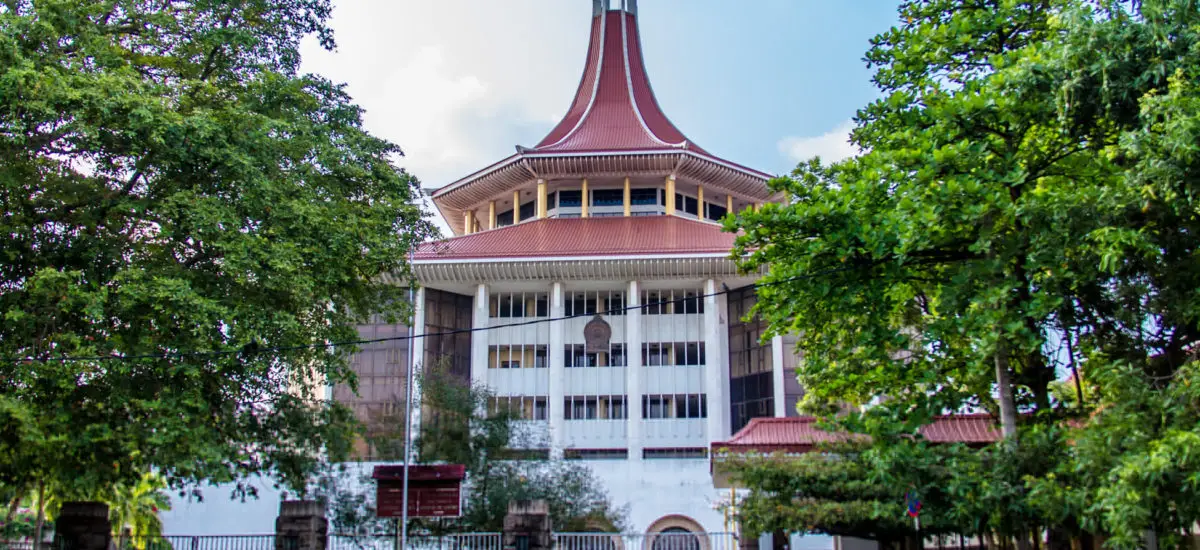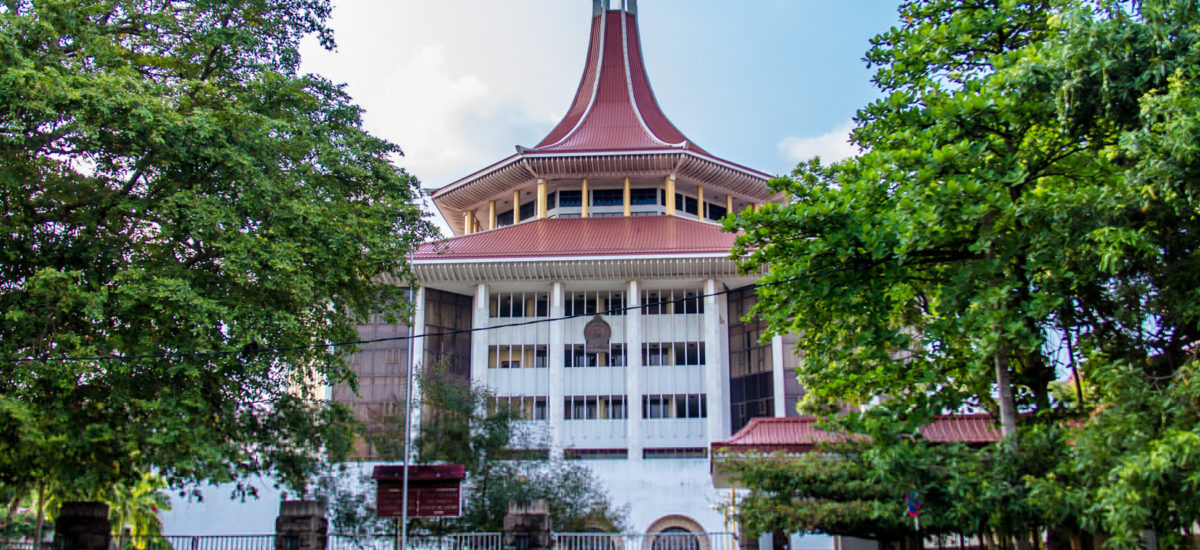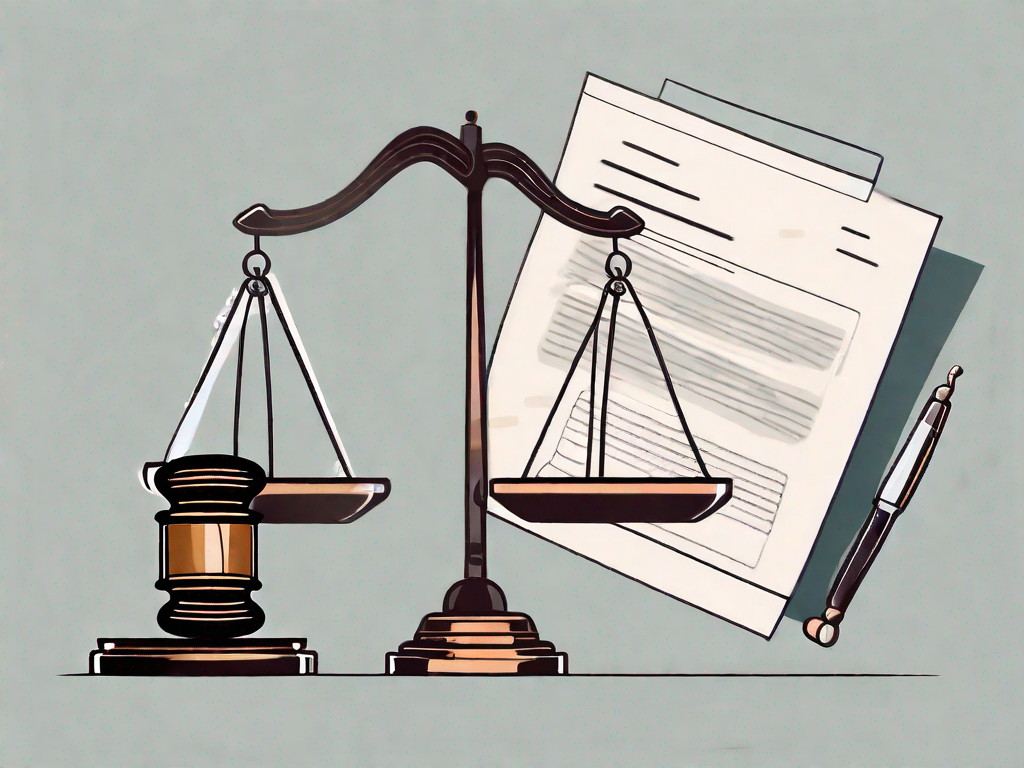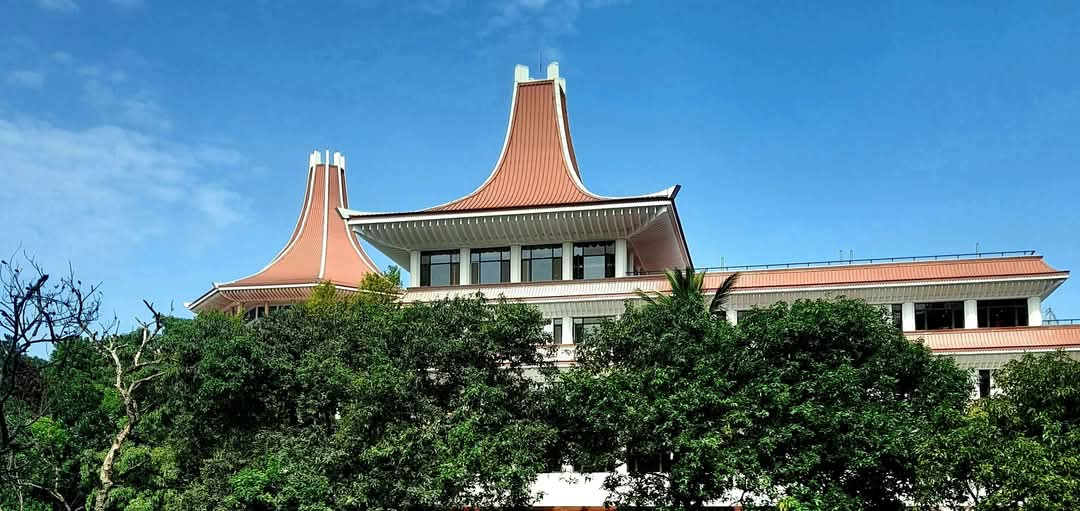Justice Janak De Silva
SC Examines Writ Jurisdiction in Diana Gamage’s Case

SC Examines ‘Disputed Facts’ & ‘Burden of Proof’ in Writ Jurisdiction
In examining the disputed facts central to the writ jurisdiction under Articles 140 and 141 of the Constitution, the Supreme Court clarified that writ jurisdiction is precluded only where the dispute concerns a “material fact”—a fact so essential that its proof is required for the Court’s determination. The Court further elaborated that the initial burden rests with the Appellant to prove material facts on a “balance of probability”.
Citing Section 106 of the Evidence Ordinance, the Supreme Court also observed that when a party withholds crucial information, especially in matters where they possess particular knowledge or access, the burden of proof shifts against them.
Background
The case originated from a petition filed by a concerned citizen challenging the eligibility of MP Diana Gamage to serve in Parliament, citing her purported British citizenship. The Appellant sought a Writ of Quo Warranto from the Court of Appeal, questioning the validity of her position in Parliament and seeking her removal on the grounds of dual citizenship.
The Respondent contended that the writ jurisdiction does not apply where facts are disputed, asserting that there were critical facts in question regarding her citizenship status. However, the Supreme Court clarified that not all disputed facts affect writ jurisdiction—only “material facts” whose resolution is necessary for the judicial review.
The Supreme Court held that to meet this threshold, the Appellant first needed to establish, on a balance of probability, that the 1st Respondent had acquired British citizenship and, in doing so, had ceased to be a citizen of Sri Lanka.
According to the Court, the 1st Respondent could regain Sri Lankan citizenship either by renouncing her British citizenship and obtaining a formal declaration by the Minister, or by securing an exemption. However, other than her general denial of British citizenship, the Respondent did not present any evidence of this process or obtain information under the Right to Information Act to substantiate her claims.
The Court further highlighted that, per Section 106 of the Evidence Ordinance, where a fact lies within the particular knowledge of a party—in this case, whether she had resumed Sri Lankan citizenship—the burden of proving that fact rests with that party. The judgment referred to Buwaneka Lalitha Keembiwela v. Geetha Samanmalee Kumarasinghe, where the Court had previously held that a parliamentary member, who held citizenship of another country, bore the responsibility of proving any renunciation or exemption from dual nationality restrictions.
“….The learned President’s Counsel for the 1st Respondent contended that it is trite law that whenever facts are in dispute the writ jurisdiction of the Court of Appeal under Articles 140 and 141 of the Constitution will not apply…”
“…This is the correct exposition of the law. The issue is whether the material facts in this application are in dispute. Not every disputed fact is a material fact. It must be a fact, the existence of which must necessarily be proved, for the court to make a determination on the application for judicial review. In order for the Appellant to succeed in this application it must firstly be established that the 1st Respondent became a British citizen. This must be done on a balance of probability”…
“The next material fact that needs to be considered is whether the 1st Respondent has resumed the status of a citizen of Sri Lanka according to law. As the learned counsel for the Appellant correctly submitted, any person who ceases to be a citizen as aforesaid can, pursuant to Section 8 of the Citizenship Act, resume the status of citizen upon a declaration made by the Minister. A precondition for such declaration is that such person shall renounce citizenship of the other country in accordance with the law. However, the Minister may exempt such person from such precondition and nonetheless make a declaration as to citizenship. The question arises as to who must take on the burden of proving this material fact. Undoubtedly, the Appellant carries the overall burden of proof. Nevertheless, the Evidence Ordinance recognises that certain facts must be proved by the person having special knowledge.”
“….There can be no difficulty for the 1st Respondent to obtain the relevant information through the use of the Right to Information Act No. 12 of 2016 or any other due process as she is a Member of Parliament and the State Minister of Tourism. However, other than a mere denial of her British citizenship, the 1st Respondent makes no assertion of regaining the status of a citizen by due process…”
“…The Appellant has on a balance of probability established that the 1st Respondent ceased to be a citizen of Sri Lanka upon acquiring British citizenship and passport. Thereafter, the burden of proving that she resumed the status of citizen of Sri Lanka falls on the 1st Respondent in terms of Section 106 of the Evidence Ordinance…”
-Justice Janak De Silva
‘Right to Remain Silent’ Not Applicable in Judicial Review – SC
In this case the Supreme Court also held that the right to remain silent and the presumption of innocence—principles fundamental to criminal law—do not apply in judicial review proceedings. The Court clarified that while these rights protect individuals in criminal cases, they have no bearing in civil or writ matters where legal issues and factual determinations differ. Citing Khatri & Ors. Etc. vs State of Bihar & Ors., the Court asserted that ongoing criminal proceedings cannot be cited as a barrier to civil or writ adjudication on similar issues.
The 1st Respondent, in her affidavit, explained her limited response to the petition, citing the possibility of being implicated as a suspect in the Magistrate’s Court case No. B 48037/01/2021. She argued that her decision to refrain from addressing each detail in the petition was based on advice to safeguard her constitutional rights, specifically the presumption of innocence, the right to remain silent, and the right to a fair trial.
“…The position taken by the 1st Respondent is misconceived in law. The right to remain silent and the presumption of innocence are concepts that apply in criminal proceedings. They have no application to proceedings for judicial review. As was held in Khatri & Ors. Etc. vs State of Bihar & Ors. [(1981) 1 SCC 627] the pendency of a criminal proceeding cannot be urged as a bar against the Court trying a civil proceeding or a writ petition where a similar issue is involved. There are instances where a person may be exposed to both criminal and civil proceedings concurrently. For example, in a road accident resulting in injury or death to another party, a driver of a vehicle is exposed to criminal proceedings in the relevant criminal court and civil proceedings in the District Court. Where such person avoids answering the averments in the plaint in detail and makes a bare denial of every averment in the plaint, he will be impeded in raising issues which need to be specifically pleaded. That is a choice a person makes which has consequences in so far as the civil proceedings are concerned….” – Justice Janak De Silva
‘Rule 3 (1) (a)’ Does NOT Require Dismissal for Every Failure to Comply with it – SC
• Court has Discretionary Power
• Only Documents “Material to the Application” Need Originals or Certified Copies
In this case, the Supreme Court also clarified the application of Rule 3 (1) (a) of the Court of Appeal (Appellate Procedure) Rules 1990, establishing that it provides discretionary power, the use of the word “may” in the rule denotes that dismissal is not compulsory for every procedural fault but rather a matter the court can decide on, considering the facts and circumstances of each case. The Supreme Court also affirmed that while the rule is imperative, it specifies that only documents “material to the application” require originals or duly certified copies.
“….Nevertheless, Rule 3 (1) (a) does not require that all originals or duly certified copies of documents must be annexed to the petition. It requires originals or duly certified copies of all the documents material to such application to be annexed to the petition. This was confirmed in Urban Development Authority v. Ceylon Entertainments Limited and others [(2004) 1 Sri.L.R. 95 at 98]…”
“….Nevertheless, Rule 3 (1) (a) does not require that an application should be dismissed for every failure to comply with it. It states that the Court may, ex mero motu or at the instance of any party, dismiss such application. The use of the word may connote discretionary power. The discretion must be exercised based on the facts and circumstances of each case…” – Justice Janak De Silva
Certified Police Statements Deemed Admissible in Writ Applications- SC
- Provisions in CrPC and Sec. 25(1) of EO Do Not Apply to Article 140 Writ Proceedings
- “I am of the view that the provisions of the Evidence Ordinance do apply to proceedings for judicial review with necessary adaptation” – Justice Janak De Silva
The Supreme Court also in this case clarified that certified copies of police statements made during criminal investigations are admissible in writ applications, despite objections regarding the absence of affidavits verifying their accuracy.
The Appellant’s submission included police statements from a Deputy Controller and the Respondent, Diana Gamage, concerning her use of British and Sri Lankan passports. The Respondent’s counsel objected to their use in the writ application, citing the Evidence Ordinance and lack of an affidavit verifying accuracy.
“I am of the view that the provisions of the Evidence Ordinance do apply to proceedings for judicial review with necessary adaptation. The Evidence Ordinance does not prohibit the admission of the statement made by the 1 st Respondent to the Police. In fact, it contains admissions made by the 1st Respondent on her British passport which are admissible in evidence in terms of Sections 17 and 21 of the Evidence Ordinance.”
“…Section 110 (3) of the Cri.P.C. states that a statement made by any person to a Police Officer in the course of any investigation may be used in accordance with the provisions of the Evidence Ordinance except for the purpose of corroborating the testimony of such person in court. The proviso states that a statement made by an accused person in the course of any investigation shall only be used to prove that he made a different statement at a different time. The 1st Respondent is not an accused person as no charges have been filed against her. Moreover, the Cri.P.C. is according to its preamble an Act to regulate the procedure of the Criminal Courts. This an application made in terms of Article 140 of the Constitution….”
“…The provisions in the Cri.P.C. apply only to criminal proceedings. There is nothing in the Cri.P.C. or the Evidence Ordinance which prohibits the use of the original or certified copies of the complete complaints or statements made to the Police in the course of any criminal investigation from being used by a civil court in civil proceedings…. In Jayanetti v. Mitrasena (71 NLR 385 at 397) Weeramantry J. held: “It may indeed appear somewhat disconcerting that admissions made or information divulged by the accused person himself should be the very material upon which a criminal charge against him is proved, but, as in other areas of the criminal law, such a circumstance does not render the evidence inadmissible. The Evidence Ordinance lays down certain limits transgression beyond which will render statements of an accused person inadmissible at his prosecution, but short of this no principle of law is offended by the use against an accused person at his trial, of disclosures made by that person himself.”… I am of the view that the provisions of the Cri.P.C. do not apply to proceedings pursuant to Article 140 of the Constitution. Neither does the prohibition in Section 25 (1) of the Evidence Ordinance. – Justice Janak De Silva
What is a Passport?
In Nrisingha Murari Chakraborty and Ors. v. State of West Bengal [(1977) 1 M.L.J. (Crl) 327 at 328] it was held: “A passport is a document which, by its nature and purpose, is a political document for the benefit of its holder. It recognises him as a citizen of the country granting it and is in nature of a request to the other country for his free passage […]”
Case No : S.C. Appeal No. 11/2024 [Decided on 08-05-2024]
Before: Hon. E. A. G. R. Amarasekara, J. Hon. K. Kumudini Wickremasinghe, J. Hon. Janak De Silva, J.







